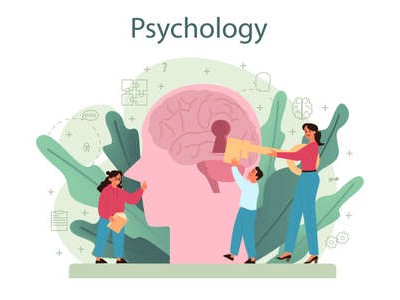
Nervousness Symptoms Psychologist Ashmore (07) 5539 9798
Isabella Whittingham Registered Psychologist Ashmore

Introduction: Symptoms For Depression Psychologist Ashmore Near Me
Anxiety and anxiety are two of the most common psychological health conditions that people deal with today. While they might appear like different conditions, they are often interconnected and can have a substantial impact on a person's general well-being. In this post, we will check out the connection in between stress and anxiety and anxiety, the signs associated with each condition, and what steps individuals can take to handle and overcome these challenges.
Understanding Stress and anxiety and Depression
What is Anxiety?
Anxiety is a natural response to stress or risk. It is characterized by feelings of anxiousness, concern, and fear about daily scenarios. While it is typical to experience anxiety from time to time, persistent anxiety can interfere with daily activities and impact one's quality of life.
What is Depression?
Depression, on the other hand, is a state of mind condition that affects how you feel, believe, and deal with daily activities. It goes beyond normal feelings of sadness or sorrow and can continue for weeks, months, or even years. Depression can make it difficult to operate in different locations of life, including work, relationships, and self-care.
The Connection Between Stress And Anxiety and Depression
Anxiety and anxiety often go hand in hand. Many individuals who experience stress and anxiety also struggle with signs of depression, and vice versa. The link between the two conditions can be attributed to numerous aspects:
Chemical Imbalance: Both stress and anxiety and anxiety are believed to involve an imbalance of neurotransmitters in the brain, such as serotonin and dopamine.
Shared Genetic Factors: Research suggests that there may be a hereditary predisposition for establishing both stress and anxiety and depression.
Stressful Life Occasions: Traumatic experiences or considerable life occasions can set off both stress and anxiety and depression symptoms.
Negative Believing Patterns: Individuals with anxiety tend to have unfavorable ideas and fret exceedingly about future occasions. These thought patterns can add to the advancement of depression.
Physical Signs: Stress and anxiety and depression can manifest with comparable physical signs, such as tiredness, sleep disruptions, and changes in appetite.
Symptoms of Anxiety
Anxiety Anxiety & Depression Psychologist Ashmore Near Me can manifest in various ways and might provide various signs in each individual. Some common signs of anxiety include:
Excessive Concern: Consistent and excessive worrying about daily circumstances, even when there is no evident reason for concern.
Restlessness: Feeling on edge or unable to unwind, often accompanied by physical manifestations like shivering or fidgeting.
Difficulty Concentrating: Problem focusing or staying present due to racing thoughts or preoccupation with worry.
Irritability: Feeling easily irritated or upset, often without a clear cause.
Sleep Disruptions: Insomnia or agitated sleep due to racing ideas or worries.
Physical Symptoms: Anxiety can likewise manifest physically, resulting in symptoms such as rapid heart beat, shortness of breath, dizziness, or gastrointestinal issues.
Symptoms of Depression
Depression can differ in intensity and discussion from person to individual. Some typical symptoms of depression include:
Persistent Unhappiness: Feeling unfortunate, empty, or helpless for an extended period, frequently accompanied by tearfulness.
Loss of Interest: Losing interest in activities once delighted in and experiencing an absence of motivation.
Changes in Appetite: Considerable weight reduction or gain due to modifications in appetite or consuming habits.
Fatigue: Feeling exhausted and doing not have energy, even after getting adequate sleep.
Difficulty Focusing: Trouble focusing, making decisions, or remembering details.
Suicidal Ideas: In extreme cases, anxiety can result in ideas of self-harm or suicide. It is vital to seek help if you experience these thoughts.
How to Manage Anxiety and Depression
Managing stress and anxiety and depression needs a comprehensive technique that deals with both the physical and emotional elements of these conditions. Here are some methods that can help:
Seek Professional Aid: Consult with a mental health professional, such as a depression psychologist in Surfers Paradise, who can supply a precise medical diagnosis and establish a personalized treatment plan.
Medication: In many cases, medication might be prescribed to assist manage symptoms of stress and anxiety and depression. A certified healthcare provider can determine if medication is necessary.
Therapy: Cognitive-behavioral therapy (CBT) and other evidence-based therapies can assist people recognize negative thought patterns, establish coping systems, and enhance overall wellness.
Self-Care: Participate in activities that promote self-care, such as routine workout, practicing relaxation methods (e.g., deep breathing or meditation), ensuring sufficient sleep, and maintaining a well balanced diet.
Social Support: Connect to friends, household, or support system who can offer understanding and encouragement throughout difficult times.
Avoid Substance Abuse: Drug abuse can worsen symptoms of stress and anxiety and anxiety. It is necessary to prevent self-medicating with drugs or alcohol.
Frequently Asked Questions
- Anxiety is identified by excessive worry and fear about everyday situations, while depression involves relentless sensations of unhappiness or hopelessness that affect everyday functioning.
- Yes, anxiety is considered a mental illness when it hinders every day life and causes significant distress.
- Signs of anxiety in guys might include irritability, anger or hostility, increased risk-taking habits, substance abuse, or physical signs like headaches or gastrointestinal issues.
- While there is no conclusive cure for stress and anxiety and depression, they can be successfully handled and treated with the best mix of therapy, medication, and self-care strategies.
- Yes, anxiety is a mental disorder characterized by persistent feelings of sadness, hopelessness, and a loss of interest in activities as soon as enjoyed.
- Offer assistance and motivation, listen without judgment, and motivate them to look for professional help. Inform yourself about their conditions to better understand their experiences.
Conclusion
Anxiety and depression are intricate conditions that frequently exist side-by-side and can significantly impact a person's wellness. Comprehending the connection in between these two disorders is important for effective treatment and management. By seeking professional aid, practicing self-care, and building a strong support group, individuals can take steps towards overcoming stress and anxiety and anxiety and restoring control over their lives. Keep in mind that you are not alone in this journey, and there is expect a brighter future.
Help With Depression And Anxiety Psychologist Ashmore
Major Depression Psychologist Ashmore Near Me
Isabella Whittingham Registered Psychologist Gold Coast
Surfers Paradise Chiropractic Centre-Dr. Bruce Whittingham
12 Thomas Drive, Surfers Paradise QLD 4217
(07) 5539 9798
https://surfersparadisechiropractic.com.au
Symptoms Of Major Depressive Disorder Psychologist Ashmore Near Me